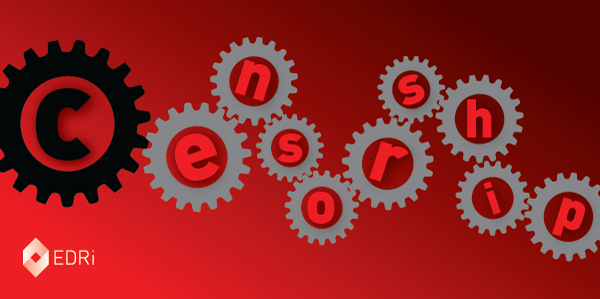The Civil Liberties Committee rejects #censorshipmachine
On 20 November 2017, the European Parliament (EP) Committee on Civil Liberties, Justice and Home Affairs (LIBE) voted against the mandatory implementation of “censorship machines” (aka upload filters) in its Opinion on the Copyright Directive proposal. After a long process and diligent hard work led by Polish Members of the European Parliment (MEP) Michal Boni (EPP) and the shadow rapporteurs trying to achieve the best compromise in the LIBE Opinion, the Committee voted to keep Mr Boni’s original proposal, together with two further amendments (on hyperlinks and “notice and takedown”).
The Opinion proposes removing the most harmful parts of the proposal:
- the obligation to filter every single upload to the internet using content recognition technologies; and
- a clarification that measures to ensure enforcement of licensing arrangements should not include general monitoring obligations for internet companies.
The balanced approach by Mr Boni MEP and the rest of the Committee is welcome. However, a stronger approach – the deletion of Article 13 – would have sent a clearer signal on the risks of the proposal to the Committee on Legal Affairs (JURI). JURI is in charge of writing the final Report on behalf of the European Parliament.
Apart from removing those two harmful aspects, LIBE also inserted a new paragraph (2a). The paragraph suggests that users would have access to “a court or another competent authority”, to react to potential unlawful actions against their online content. This essentially restates current law. On top of that, an amendment from Daniel Dalton MEP defending that “hyperlinking to an already publicly available content does not constitute a communication to the public” for that source, is one of those pieces of common sense that seem to be hard to pass in the EP.
On the less positive side of the text, LIBE has passed an amendment which, similarly to the original proposal from the Commission, asks that information society service providers “should take appropriate and proportionate measures to ensure the protection of works”. The text surprisingly suggests that such measures “should” respect the Charter of Fundamental Rights of the European Union, even though such measures would be taken by private companies, who are not bound by the Charter.
Despite not deleting Article 13, LIBE has has firmly opposed the imposition of censorship machines in the copyright proposal. After this vote, the next and last parliamentary step before a probable launch of closed-door “trilogue” negotiations with the Member States in the Council is the vote in JURI (the lead Committee on this proposal) which is scheduled for 24/25 January 2018.
Before this final vote, there is still time to act on this and make sure that no censorship machines that limit citizens’ freedom of expression are established in the EU.

Civil society calls for the deletion of the #censorshipmachine (16.10.2017)
https://edri.org/civil-society-calls-for-the-deletion-of-the-censorshipmachine/
Leak: Three EU countries join forces for restrictions & copyright chaos (26.11.2017)
https://edri.org/leak-three-eu-countries-join-forces-to-stamp-out-free-speech-online/
New Estonian Presidency “compromise” creates copyright chaos (03.11.2017)
https://edri.org/new-estonian-presidency-compromise-creates-copyright-chaos/
Copyright reform: Document pool
https://edri.org/copyright-reform-document-pool/
(Contribution by Diego Naranjo, EDRi)

